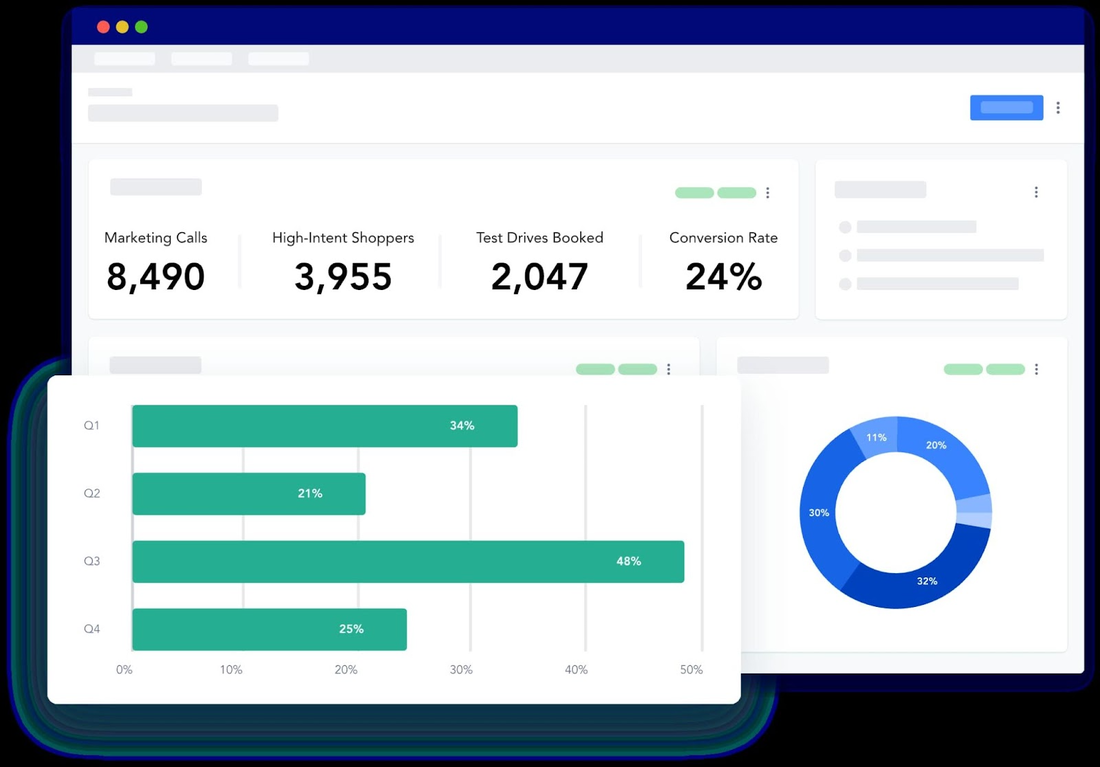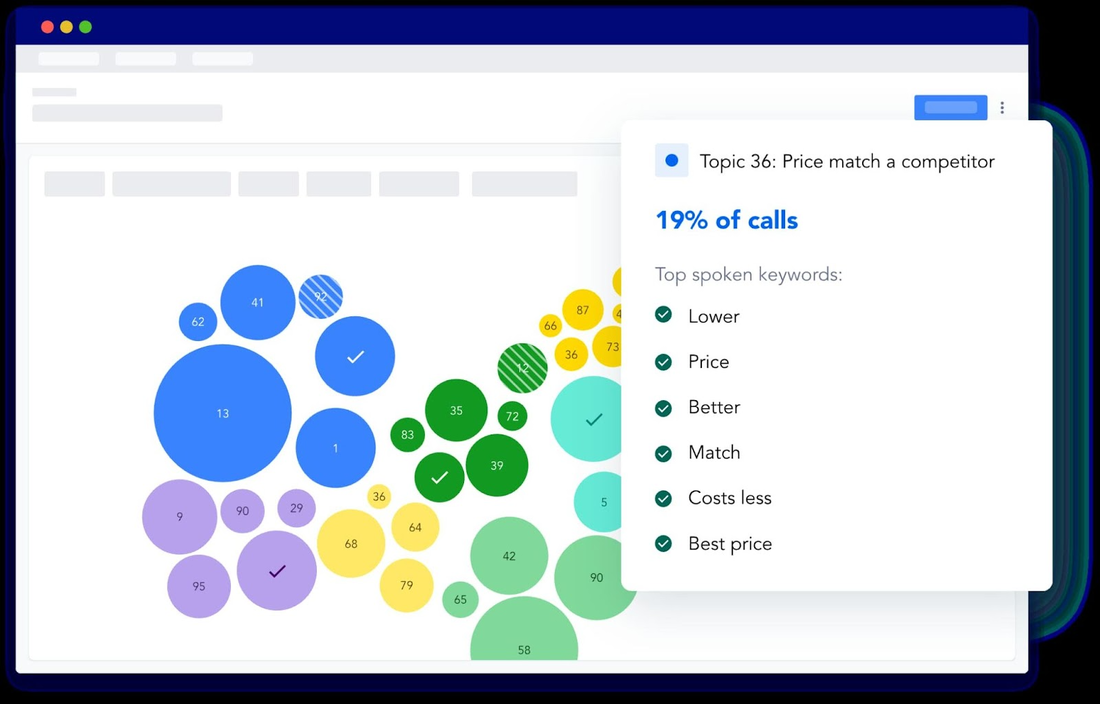
In today's rapidly evolving economic landscape, businesses are grappling with a multitude of marketing challenges. From unpredictable market fluctuations to shrinking traditional media budgets and the push to utilize AI, the rules of the game are changing every day. The ability to adapt and innovate is no longer just an advantage — it's a necessity for survival.
At the heart of this challenge is the continued shift towards a more data-driven approach in marketing. Using data to understand customer behavior, predict future trends, and make informed decisions has become the cornerstone of successful marketing strategies. However, navigating this data-driven world can be daunting, especially for those who are used to traditional marketing methods.
How can you stay ahead of the curve and thrive in this dynamic environment? Check out these three transformative tips that will help you revamp your marketing strategy, attract more customers, and ultimately, drive business growth.
Closed-loop marketing measurement is the cornerstone of any data-driven marketing strategy. It requires tracking and analyzing the entire customer journey from the first point of contact to the final sale. When you include everything from the first click to website interactions and phone calls to conversions, it creates a feedback loop where insights from sales outcomes are fed back into the marketing strategy to improve future results.
Closed-loop strategies provide a holistic view of the customer journey, so you can identify gaps, enhance engagement, and increase overall marketing efficiency. In essence, it's about closing the gap between marketing activities and sales results.
One of the gaps that marketers often face appears when their campaigns tend to drive customers to call. This happens frequently in high-stakes purchases where the product or service is expensive, complex, and even potentially life-changing. This is seen in industries like healthcare, automotive, home improvement services, and financial services where your customers aren’t just going to click their way through the whole process—they need to talk to a person to have the confidence that they're making the right decision.
This is where AI technology like conversation intelligence comes into play to close that loop. You can use it to analyze customer conversations and their outcomes at scale and integrate that data into your analysis and close a big data dead zone in your closed-loop process.
 Invoca conversation intelligence gives you visibility into the entire marketing funnel
Invoca conversation intelligence gives you visibility into the entire marketing funnelWhen budgets are under fire like they are today, forging a strong alliance between marketing and finance teams is key to getting buy-in for your strategic decisions. This collaboration fosters better communication and paves the way for more informed decision-making, securing your marketing budget, and enhancing overall profitability.
When marketers collaborate with their CFOs, they are better equipped to defend their marketing budget. They can effectively articulate how marketing initiatives contribute to the bottom line, and gain the trust and support of the finance team.
One compelling example of such a partnership is at a large CPG company where mini CFOs are embedded within the marketing team. They report to both the CFO organization and the CMO organization, establishing a bridge between the two. This structure ensures that marketing initiatives meet financial performance standards while the CFO gains a better understanding of the marketing strategy.
A solid marketing-finance collaboration equips businesses with the insights needed to allocate resources effectively, drive growth, and outpace the competition.
Zero-party data allows marketers to create more relevant campaigns that are tailored to their target audiences and can help increase engagement and sales.
“Now we see marketers really doubling down on zero-party data and first-party data because not only can it inform experiences, but it can help better understand how advertising and performance media is driving to a website or to a call center,” said Tina Moffett, principal analyst at Forrester in this webinar. “Being able to collect that information directly from the customer means that you’re developing a deeper knowledge of customer preferences that can inform your campaigns as well.”
The great part is that zero-party data is also generally more secure and respectful of the privacy-conscious consumer’s personal data since there are no intermediaries or other third parties to get involved or access the data.
The best way to gather zero-party data is to ask for it directly from the customer. This can be done through surveys, quizzes, polls, or other interactive content that encourages the customer to share their preferences and interests.
 Invoca's AI-powered Signal Discovery enables marketers to tap into zero-party data from customer conversations
Invoca's AI-powered Signal Discovery enables marketers to tap into zero-party data from customer conversationsConversation intelligence software can also be used to gather zero-party data by listening to customer conversations and analyzing customer sentiment. This allows marketers to understand customer sentiments, preferences, interests, and purchase intentions in an automated way. By using conversation intelligence, marketers can gain insight into customer behavior, allowing them to create more personalized and effective marketing experiences.
The original version of this page was published at: https://www.invoca.com/blog/3-tips-revamp-marketing-strategy-for-todays-economy
Invoca for Healthcare enables healthcare providers to capture detailed analytics on a new patient’s full journey. This includes the marketing campaign that drove initial interest, the specific webp... Read more
Anyone who has spent a little time in the SEO world knows that organic search is often the most significant driver of web traffic. It’s how most consumers discover your business, ...read more
You’ve no doubt been flooded with articles about the potential 2023 recession. Leading analysts and economists have been predicting a downturn for months now, but it sure ...read more
The third-party tracking cookie has been crumbling since 2018 and it’s usefulness for audience tracking has waned significantly since. Most browsers block third-party cookies ...read more
COVID-19 has caused radical shifts in the way patients engage with healthcare providers. To thrive in 2023, healthcare marketers need to anticipate future trends and adapt their strategies ...read more